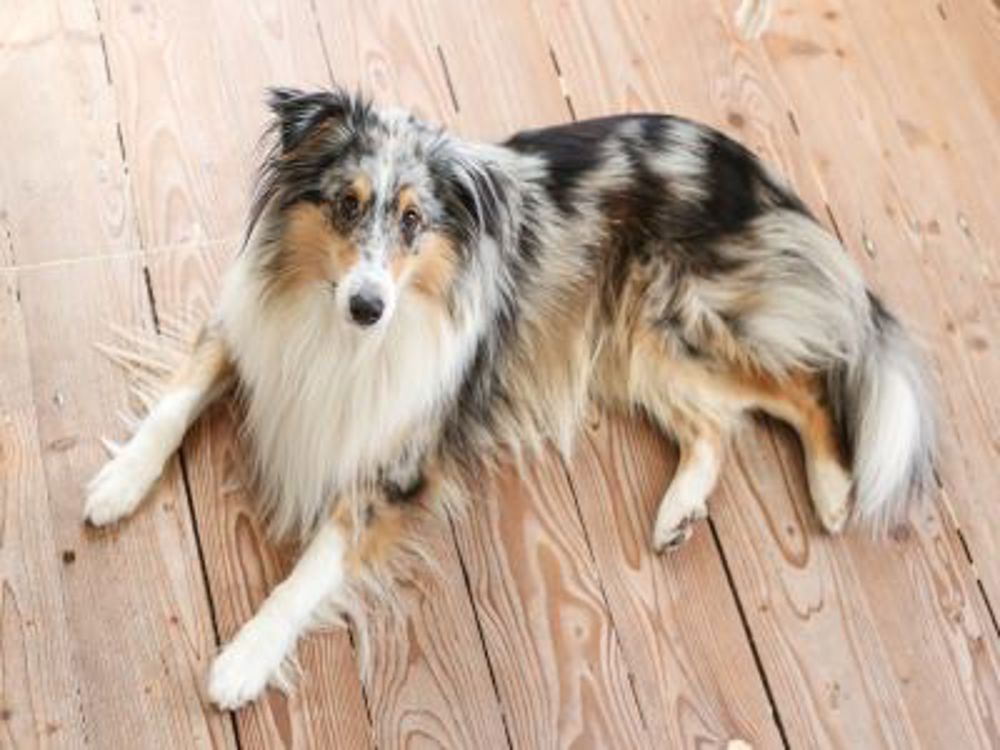
Merle, also known as dapple in some breeds, is a distinctive pattern of colours used to describe the coat of some dogs. Merle dogs can come in a range of colours, but the pattern is usually a splash of darker shades, marbled against a lighter background. This type of coat is inherited, and the gene that causes this pattern can also affect the colour of a dog’s eyes and some parts of their skin, usually their nose or paw pads. Some merle dogs, specifically those that have two merle parents, have an increased risk of certain health issues.
Does The Kennel Club register merle dogs?
We only accept for registration merle dogs in the following breeds:
- Australian Shepherd,
- Beauceron,
- Bergamasco,
- Border Collie,
- Dachshund (colour known as dapple),
- Great Dane,
- Pyrenean Sheepdog (Long Haired),
- Collie (Rough),
- Collie (Smooth),
- Shetland Sheepdog, and
- Corgi (Cardigan Welsh).
If it is later determined that the dog has been mis-registered, we reserve the right to cancel the registration, and any other associated registrations.
How is merle inherited?
This type of coat is caused by a variation of a particular gene. Each dog has two copies of every gene; one that they inherit from their mother and one they inherit from their father. The merle gene variant is dominant, which means that a dog only needs one copy, inherited from either of their parents, to have a merle coat.
